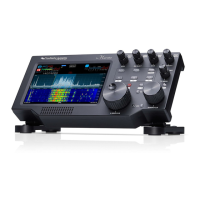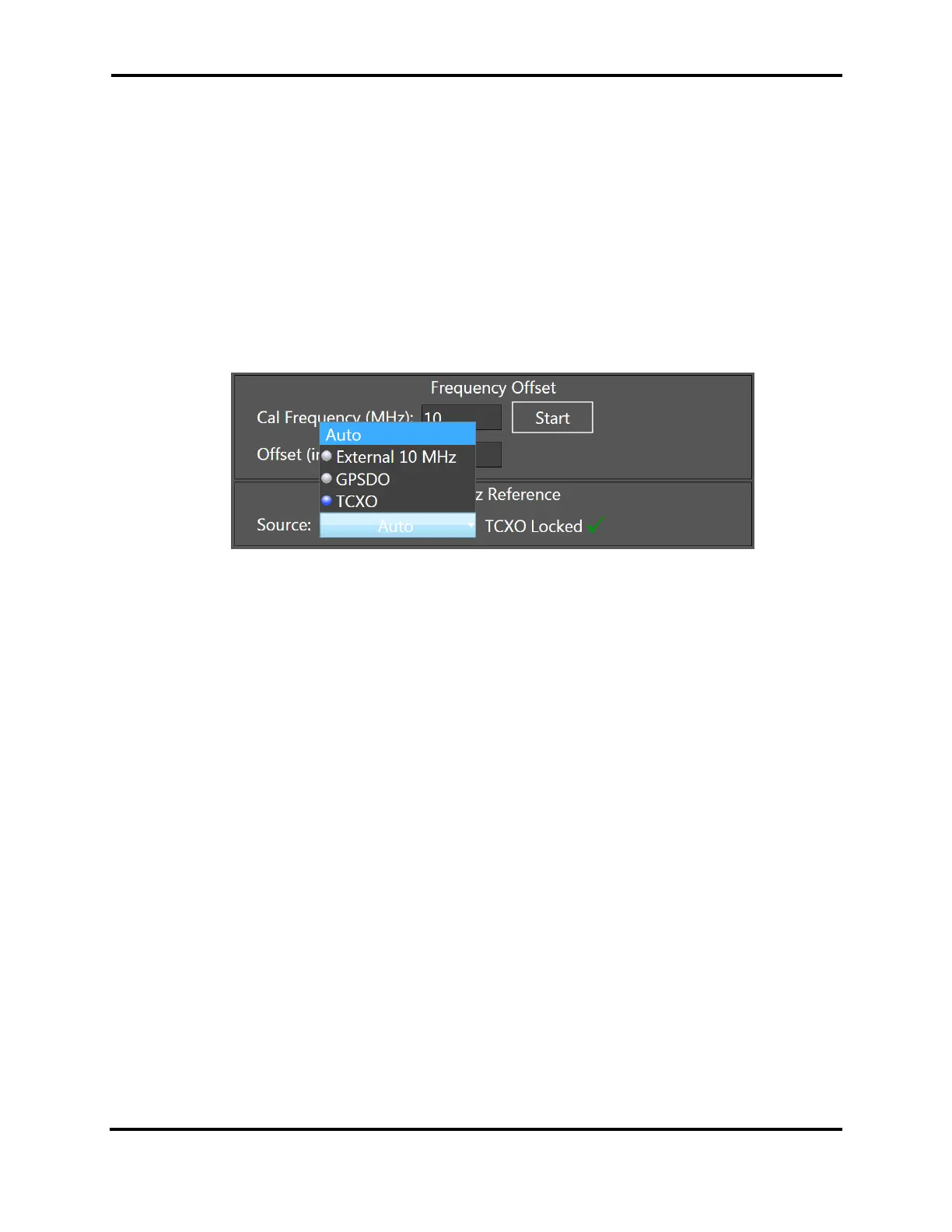FLEX-6000 Signature Series – Maestro User Guide
Page 129
Copyright 2019 FlexRadio Systems. All Rights Reserved.
1. Select a signal of known frequency, with strength greater than S6. In the US, WWV is a good
choice.
2. Enter the known frequency in the Calibration Frequency field
3. Click Start
The radio will tune to the signal and compare its tuned frequency to the declared frequency. The
difference will appear in the Offset field. You can also enter a value directly into the Offset field.
NOTE: When running the frequency calibration, the radio uses Slice A and ANT-1 regardless of
the radio’s slice/antenna configuration.
The 10 MHz Reference section offers a selection of 10 MHz signal sources that synchronize the local
10 MHz master oscillator. This feature is not available in the FLEX-6300, FLEX-6500 or FLEX-6700.
The radio monitors each of the inputs and indicates which have a signal present with the blue marker.
The Temperature Compensated Crystal Oscillator (TCXO) is part of the radio hardware and is always
available. When one of the three inputs is selected, using the menu shown above, the radio will use
that input regardless of the presence of a signal. The master oscillator status is shown to the right of
the selection list. When the master oscillator is trying to lock to the selected input, the status
message will say “searching”. When it is locked, it will say “Locked”.
In Auto mode, the radio monitors each of the inputs and selects an input that offers a signal in priority
order. The highest priority signal is the External 10 MHz signal (optional), followed by the GPSDO
signal (optional), followed by the TCXO signal (always provided). The radio will track changes in the
availability of the signals. For instance, if the External 10 MHz signal appears, the radio will switch to
it from the GPSDO or TCXO signal.

